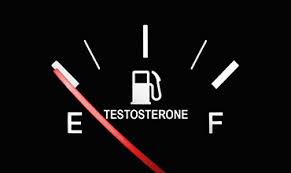
Low T and Brain Function
Men (and women!) all know that testosterone is related to strength and musculature. We also know that as we age, and testosterone levels drop, we become weaker, frailer, and our ability to build muscle tone wains.
Is the same true when it comes to mental ability and fortitude? Could the well-familiar “senior moments” and other cognitive difficulties that come with aging, also be linked to declining levels of testosterone?
Some of the latest research into testosterone replacement therapy seems to say “yes.”
Medical science has long believed there was a connection between adequate testosterone production and cognitive ability. Given declining testosterone level’s negative impact on other bodily functions and emotional states, it was likely more than mere coincidence that focus, memory and cognition and testosterone levels all decline the older you get.
This first became apparent when researchers noticed that men who had suffered significant testosterone loss, due to conditions other than aging, experienced some drop in cognitive function. For example, a 2006 study published in the European Journal of Endocrinology indicated, “Chemical castration studies in men with prostate cancer suggest that low serum testosterone may be associated with cognitive dysfunction. Low testosterone levels have also been observed in patients with Alzheimer’s disease, and mild cognitive impairment.”
A more recent report put out by the Harvard Men’s Health Watch also concluded that there was a link between low-testosterone and age-related memory loss. That study went on to conclude that given this link, testosterone replacement therapy could be a promising treatment for Alzheimer ’s disease, or other forms of age-related memory loss or dementia.
The Latest Research on Testosterone and Cognition
More recently, Dr. Justin Carré, a Professor of Neurology Nipissing University designed a study to more closely examine the effects of testosterone on healthy brain function.
He and his team based their research on the “fight or flight” response in men, knowing that the release of testosterone is largely responsible for trigging “aggressive” behavior in response to a threat. Dr. Carré knew the impact that testosterone had on the brain in this response, so it was an easy “brain-testosterone” connection to observe.
The researchers used 16 healthy young males in the study.
The researchers artificially lowered the testosterone of all the subjects to the below normal range. They then did a typical double-blind study, with one group receiving a placebo, and another getting testosterone replacement enough to bring them back into the normal range.
While hooked up to brain mapping apparatus that could monitor their brain activity, both groups were then shown dangerous images or people with aggressive faces. Sure enough, as expected, the brains of the men with low testosterone did not react as quickly, or as “aggressively” in response to the threats, as those who had been receiving testosterone replacement.
Upon analysis of the data, Carré concluded, “We were able to show for the first time that increasing levels of testosterone within the normal physiological range can have a profound effect on brain circuits that are involved in threat-processing and human aggression…”
Dr. Carré’s groundbreaking study gave the medical community some of the first concrete evidence that testosterone can actually influence brain states. In this case, it indicated that testosterone could boost the male brain into a state of super-focus, in response to a threat. That has some interesting implications for supplemental testosterone therapies. Could testosterone help “re-sharpen” the focus and clear the mental fog that many experience as we age? Anecdotal evidence of both men and women who have been on testosterone therapy seems to say that is the case.
One of the most common benefits reported by patients during the first few months of testosterone replacement is that they find themselves able to “concentrate better, and think more clearly.”

Recent Comments